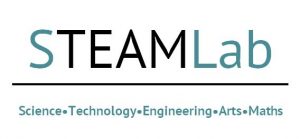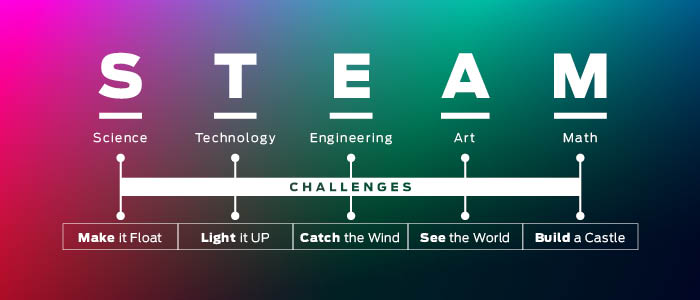 On Wednesday, 24 February 2021, BU’s Research, Support & Development Office will be hosting our very first, pilot Virtual STEAMlab (Science/Tech/Engineering/Arts/Maths lab) event under the aegis of the strategic investment area (SIA) of Animation, Simulation & Visualisation (ASV). It will also be the first of a series of 2-hour long virtual ASV STEAMlabs to be held in the course of 2021.
On Wednesday, 24 February 2021, BU’s Research, Support & Development Office will be hosting our very first, pilot Virtual STEAMlab (Science/Tech/Engineering/Arts/Maths lab) event under the aegis of the strategic investment area (SIA) of Animation, Simulation & Visualisation (ASV). It will also be the first of a series of 2-hour long virtual ASV STEAMlabs to be held in the course of 2021.
This first STEAMlab will introduce and address four core priority areas for the strategic development of ASV cross-faculty, multi-disciplinary collaborations across BU in conjunction with external partners. These 4 areas are:
Virtual Production
Digital Health
Environment in Crisis
Virtual Heritage
This first STEAMlab will focus on these ASV themes in break-out rooms to target specific funding opportunities.
The ideas generated at this event may also be used to help select colleagues for Scramble events at short notice.
Booking onto this event
To take part in this exciting opportunity, all participants should complete the ASV Virtual STEAMLab Application Form V2 and return this to Nicolette Barsdorf-Liebchen at nbliebchen@bournemouth.ac.uk by Friday, 5 February 2021.
By applying, you agree to attend for the full duration of the event on 24 February 2021, 1 – 3 pm. Places are strictly limited and you will be contacted to confirm your “virtual space” by 12 February 2021.
If you have any queries prior to submitting your application, please contact Nicolette Barsdorf-Liebchen.
The Brief
We’re seeking to come up with highly innovative and urgently required research which is ambitious in scope and will require a high level of expertise, commitment and funding. The research must address challenges in the above-mentioned areas, and seek to deploy BU’s considerable ASV expertise and assets.
In short, we anticipate the development of innovative, ground-breaking and ambitious projects which have the capacity to attract significant, high value funding from the public and private sectors.
Who should attend?
We welcome those who wish to contribute to having a positive impact through addressing these challenges, but in particular, we are specifically targeting the following:
- Those academics whose research aligns with one or more of these core areas, or whose research would benefit from the multidisciplinary, collaborative engagement supported by the ASV SIA;
- Who has experience of involvement in medium to large research projects, and finally;
- Who either has the capacity to lead as PI on ideas arising from the STEAMlab in a working group towards development of a substantial grant application of close to or above £1 million, or has the ambition, research track record and commitment to be involved in the same.
We will also be inviting relevant external attendees, such as digital technology companies, to contribute on the day.
Some Answers to your FAQs:
Do I need to do anything in advance?
No, you do not. During the STEAMLab, you’ll be guided through a process which results in the development of research ideas. The process facilitates creativity, potentially leading to grand, innovative and interdisciplinary research ideas. These ideas will be explored with other attendees, and further developed based on the feedback received.
What is the immediate objective?
The objective by the end of the STEAMlab is to have scoped some leading and grand ideas around which a working group or cluster can be formed to take forward towards the development of a large grant application.
What do I need to do afterwards?
Your project idea may be “oven-ready”, but it is more likely than not that, given the level of pioneering innovation sought, you/your group’s project idea/s will require some time to crystallise fully, and for the optimum partners to be found for the bidding consortium, and bringing to fruition a fully-fledged grant application. To this end, it is envisaged that you and your potential collaborators will be committed to meeting on a regular basis, with a firm timetable. Substantial administrative support will be available from both RDS as a whole and the ASV Research Facilitator, Dr Nicolette Barsdorf-Liebchen, to advance your project development and manage working groups.
What if my topic area is very specialised, within fields such as medical diagnostics or environmental science?
Your contribution will be very welcome! One of the main benefits of a STEAMlab event is to bring together individuals with a range of backgrounds and specialisms who are able to see things just that bit differently to one another.
 This is a reminder that on Wednesday, 12 May 2021 from 11.30am to 1pm, RDS will be hosting Virtual STEAMLab event under the strategic investment area of Assistive Technology.
This is a reminder that on Wednesday, 12 May 2021 from 11.30am to 1pm, RDS will be hosting Virtual STEAMLab event under the strategic investment area of Assistive Technology. On Wednesday, 12 May 2021 from 11.30 to 1pm, RDS will be hosting Virtual AT STEAMlab (Science/Tech/Engineering/Arts/Maths lab) event under the strategic investment area (SIA) of Assistive Technology (AT). It will be the second of a series of up to 2-hour long virtual STEAMlabs to be held in the course of 2021.
On Wednesday, 12 May 2021 from 11.30 to 1pm, RDS will be hosting Virtual AT STEAMlab (Science/Tech/Engineering/Arts/Maths lab) event under the strategic investment area (SIA) of Assistive Technology (AT). It will be the second of a series of up to 2-hour long virtual STEAMlabs to be held in the course of 2021. We’re seeking to come up with highly innovative and urgently required research which is ambitious in scope and will require a high level of expertise, commitment and funding. The research must address challenges in the AT field.
We’re seeking to come up with highly innovative and urgently required research which is ambitious in scope and will require a high level of expertise, commitment and funding. The research must address challenges in the AT field. Your project idea may be “oven-ready”, but it is more likely than not that, given the level of pioneering innovation sought, you/your group’s project idea/s will require some time to crystallise fully, and for the optimum partners to be found for the building a winning consortium, and bringing to fruition a fully-fledged grant application. To this end, it is envisaged that you and your potential collaborators will be committed to meeting on a regular basis, with a firm timetable.
Your project idea may be “oven-ready”, but it is more likely than not that, given the level of pioneering innovation sought, you/your group’s project idea/s will require some time to crystallise fully, and for the optimum partners to be found for the building a winning consortium, and bringing to fruition a fully-fledged grant application. To this end, it is envisaged that you and your potential collaborators will be committed to meeting on a regular basis, with a firm timetable.
 Research Funding Panels: To help us further develop our research capacity in line with BU2025, the Research Performance and Management Committee (RPMC) oversees research investment and performance. Under the auspices of the RPMC, Funding Panels have been established to have oversight of funding allocations, in order to further build the research environment, our external engagement and the quality and impact of research endeavours. There are seven funding panels and future calls will be released on the BU intranet. You can find out
Research Funding Panels: To help us further develop our research capacity in line with BU2025, the Research Performance and Management Committee (RPMC) oversees research investment and performance. Under the auspices of the RPMC, Funding Panels have been established to have oversight of funding allocations, in order to further build the research environment, our external engagement and the quality and impact of research endeavours. There are seven funding panels and future calls will be released on the BU intranet. You can find out  Strategic Investment Areas: As articulated within
Strategic Investment Areas: As articulated within  On Wednesday, 24 February 2021, BU’s Research, Support & Development Office will be hosting our very first, pilot Virtual STEAMlab (Science/Tech/Engineering/Arts/Maths lab) event under the aegis of the strategic investment area (SIA) of Animation, Simulation & Visualisation (ASV). It will also be the first of a series of 2-hour long virtual ASV STEAMlabs to be held in the course of 2021.
On Wednesday, 24 February 2021, BU’s Research, Support & Development Office will be hosting our very first, pilot Virtual STEAMlab (Science/Tech/Engineering/Arts/Maths lab) event under the aegis of the strategic investment area (SIA) of Animation, Simulation & Visualisation (ASV). It will also be the first of a series of 2-hour long virtual ASV STEAMlabs to be held in the course of 2021.


 Four key topics have been selected for the STEAMLabs in 2017/18. These are based around key government priorities and where the biggest pots of funding will be available. The STEAMLab topics are:
Four key topics have been selected for the STEAMLabs in 2017/18. These are based around key government priorities and where the biggest pots of funding will be available. The STEAMLab topics are:










 Expand Your Impact: Collaboration and Networking Workshops for Researchers
Expand Your Impact: Collaboration and Networking Workshops for Researchers Visiting Prof. Sujan Marahatta presenting at BU
Visiting Prof. Sujan Marahatta presenting at BU 3C Event: Research Culture, Community & Can you Guess Who? Thursday 26 March 1-2pm
3C Event: Research Culture, Community & Can you Guess Who? Thursday 26 March 1-2pm UKCGE Recognised Research Supervision Programme: Deadline Approaching
UKCGE Recognised Research Supervision Programme: Deadline Approaching ECR Funding Open Call: Research Culture & Community Grant – Apply now
ECR Funding Open Call: Research Culture & Community Grant – Apply now ECR Funding Open Call: Research Culture & Community Grant – Application Deadline Friday 12 December
ECR Funding Open Call: Research Culture & Community Grant – Application Deadline Friday 12 December MSCA Postdoctoral Fellowships 2025 Call
MSCA Postdoctoral Fellowships 2025 Call ERC Advanced Grant 2025 Webinar
ERC Advanced Grant 2025 Webinar Update on UKRO services
Update on UKRO services European research project exploring use of ‘virtual twins’ to better manage metabolic associated fatty liver disease
European research project exploring use of ‘virtual twins’ to better manage metabolic associated fatty liver disease